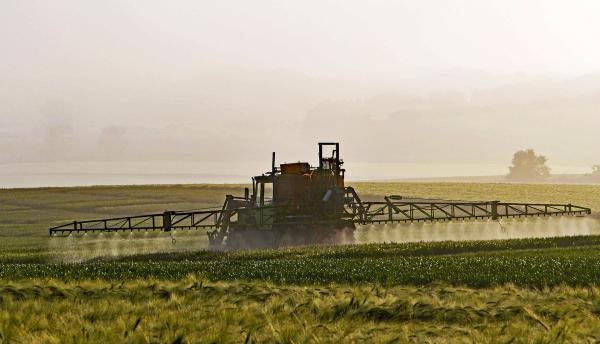It seems not a month goes by without an “investigative reporter” somewhere on the internet warning about the dangers of pesticides and the EPA's failure to do anything about them. I have in mind this recent story from The Intercept: The Department Of Yes: How Pesticide Companies Corrupted The EPA and Poisoned America, but a similar story from the Guardian or Huffington Post would fit the bill equally well.
Stories like these are usually comprehensive; they include quotes from experts, links to peer-reviewed studies, and damning references to misbehaving corporations and regulators who look the other way. Despite such hallmarks of trustworthy reporting, these articles are often fundamentally flawed.
Read part two of this series: Pesticide Conspiracies Debunked: How The Media Misleads You About Chemical Safety
Limited time prevents us from deconstructing every one of these Erin Brockovich-inspired stories, so I want to outline a few rules you can follow to determine if you're reading solid reporting or political advocacy presented as reporting. We'll break these into two articles for the sake of brevity.
Warning: this story lacks nuance
Pesticides are not just a necessary tool in food production; they are arguably one of the more important public health innovations afforded by scientific progress. If this sounds ridiculous to you, it's because you don't know what life is like without these essential chemicals. Pesticides can undoubtedly be very dangerous, yet, as former FDA scientist Henry Miller explained recently,
by any of the standard measures of public health – reductions in mortality, impairment, and infectious diseases, as well as improved quality of life – the contribution of modern pesticides has been profound.
The simple fact is that pests destroy crops before we can harvest them for food. The more successful weeds, insects, and harmful microorganisms are in this pursuit, the greater the risk of malnutrition. Going hungry is pretty miserable, but if not addressed, it can be deadly, and hundreds of millions of people worldwide don't have enough to eat as you read this sentence. Pesticides also take out disease-spreading animals and reduce the presence of cancer-causing molds in food.
Journalists who assert that pesticide companies have “poisoned America” downplay these important benefits (or ignore them entirely) and deserve your skepticism. They think in terms of clearly defined villains and heroes and leave no room for nuance, which is required to properly assess the risks and benefits of pesticide use, or any chemical for that matter.
Double standards
In early 2018, French scientists published a startling report about the fungicide copper sulfate, which is widely used in organic agriculture. “Excessive concentrations of copper have adverse effects on the growth and development of most plants, microbial communities, and soil fauna,” they wrote. Research has also confirmed that the fungicide can cause cancer and is very toxic to honeybees.
Though reporters will often dedicate thousands of words to the dangers of pesticides, rarely will they mention copper sulfate (The Intercept certainly didn't). The author claimed that neonicotinoid insecticides (neonics) “slow the learning process in bees and impact their ability to forage and fly long distances.” She also alleged that glyphosate “has been under scrutiny for its cancer-causing potential at the EPA since at least 1983.” This is all the more strange because literally thousands of studies have shown that glyphosate doesn't cause cancer. Data from the USDA and UN Food and Agricultural Organization show that honeybee populations have grown despite the widespread use of neonics.
Why the concern about these insecticides and glyphosate but not copper sulfate? Perhaps it's just an oversight on the part of uninformed reporters. But if we want to blame bee deaths and cancer on pesticides, we can't only go after synthetic chemicals that are excluded from organic agriculture. Journalists who do so mislead their audiences. For what it's worth, the biggest threat to honeybees is the Varroa destructor mite, not pesticides.
Rachael Carson uncritically cited
Rachael Carson is largely responsible for bringing environmental protection into the popular conscience with her 1962 book Silent Spring. She deserves credit for warning us about the misuse of pesticides, particularly the insecticide DDT, and fueling support for the creation of the EPA. The Intercept was happy to tell this story:
Pesticide companies attacked Carson and her work … But Carson’s warnings won the day: Eight years after the publication of 'Silent Spring,' President Richard Nixon launched the EPA, using military language to describe its mission — to fight a 'war on pollution.'
But the history is more complicated than that, a fact the media tends to overlook. “Rachel Carson is, and should be, a revered environmental icon,” pediatrician Paul Offit wrote in 2017. “But her crusade against one pesticide cost millions of people their lives.” Carson alleged that DDT, which was used at the time to control malaria-vectoring mosquitoes, caused a variety of maladies—including birth defects, liver disease, chromosomal abnormalities, and leukemia. Her allegations led many countries to ban the insecticide.
As it turns out, Carson was badly mistaken. Multiple studies conducted subsequently showed that DDT wasn't to blame for the diseases laid at its feet in Silent Spring, Offit noted:
Indeed, the only type of cancer that had increased in the United States during the DDT era was lung cancer, which was caused by cigarette smoking. DDT was arguably one of the safer insect repellents ever invented …In 2006, the World Health Organization reinstated DDT as part of its effort to eradicate malaria. But not before millions of people had died needlessly from the disease.
A word of caution
Before we move on to part two, I want to end with an important qualification. Pesticide companies can be bad actors, and the EPA has, at times, allowed politics to distort its scientific analysis. These are inexcusable failures of our regulatory system, but they don't give journalists an excuse to inject their own biases into reporting about chemical safety. Distorted stories about corrupt corporations and regulators, while very sexy, don't get us any closer to the truth.




